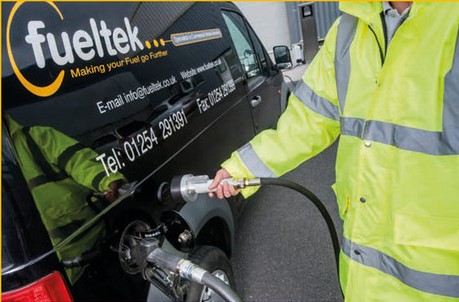5 Fleet Manager Essentials
Fleet managers play a pivotal role in logistics and transportation companies. To be a successful fleet manager, you must be able to maintain and be on top of your entire fleet of vehicles, keep track of deliveries and ensure that distributions are on schedule within established budgets. This kind of role requires extensive skills and experience in operations, logistics and software that monitors both fleets and drivers.
To ensure a fleet manager achieves success, they must have a number of essential skills and be knowledgeable in the right kind of technology to help make their job more efficient and better for the company. Here are five fleet manager essentials.

Flexibility and Ability to Multitask
Fleet managers have a number of responsibilities that can continuously change on the job at the drop of a hat. As such, they must be excellent at multitasking and have the ability to make themselves flexible to any arising issues and problems.
They must balance everything to ensure that their fleet is working efficiently. Everything from the drivers, their suppliers and the vehicles all fall under the umbrella of what a fleet manager is expected to take care of day-in and day-out. A skilled fleet manager must juggle all of these at once and adapt on the job.
With COVID-19, flexibility has never been a more critical skill for fleet managers. More work is being outsourced, and people are working from home, meaning that managers jobs are changing. A great fleet manager needs to be able to adapt to working remotely and still instil their great managerial style from home and keep on top of everything, even without interacting with their drivers in person. Fleet management is ever-changing, and successful fleet managers need to adapt to the change rather than fight it.
Excellent Communication Skills
Problems often arise due to miscommunication or a lack of effective communication. Meanings can be lost, and processes may break down due to a lack of clarity across the workflow. So, a fleet manager needs to have extremely effective communication skills to ensure they can communicate with their drivers, customers and suppliers effectively, and it should be understandable for everyone.
Regardless of the scenario, a fleet manager should be able to relay information clearly and succinctly. A fleet manager also needs to be a great listener who can understand the problems and concerns of their drivers and suggest resolutions and ideas. When you’re taking care of so many people and aspects of a fleet, good communication skills are essential.

Goal-Oriented
Fleet managers need to set goals and employ the right kind of metrics to continually benchmark productivity to make consistent improvements to fleet operations. Optimising processes is a huge part of a fleet manager’s role, effectively managing vehicle downtime, fleet utilisation and operating costs. Setting goals makes improving processes easier by breaking down tasks into smaller, more manageable achievements that can be worked towards.
Fleet managers should be committed to achieving specific results and should implement goals that work towards these results. Being goal-orientated will allow a fleet manager to be creative in addressing challenges.
Strong Leadership
A fleet manager needs to know how to lead effectively. They are in charge of not only a fleet team but drivers too. A fleet manager is more of a leader than a manager, capable of leading their team over hurdles that arise and guide them to the best resolution.
The team will look to their fleet manager for guidance, so you need to be inspiring and able to instil confidence and trust throughout your team. Being able to analyse information, solve problems and bring your workers onto the best course of action are all the hallmarks of a strong leader.
Effective Fuel Management System
Fleet management is a technology-driven role. An effective fleet manager knows about all the various technologies on the market designed to make their job more efficient and identify the ones that will fit the needs and goals of their fleet the best. Even small fleets are taking advantage of technology to make the managing of their vehicles that little bit easier.
Fuel management systems are designed to make the job of a fleet manager more efficient. These systems monitor fuel tanks, dispensing pumps and provide fleet managers with the ability to identify cost-saving methods and implement other best practices.
With a fuel management system from Fueltek, you can access your fuel management software data online through the online fuel management platform. When used with any of our Fuel Access Control Terminals, the program can be used on any PC or other internet-enabled device with just the login details.

For more information about how Fueltek can help your fleet operations with fuel management systems or fuel monitoring solutions, contact us today.







